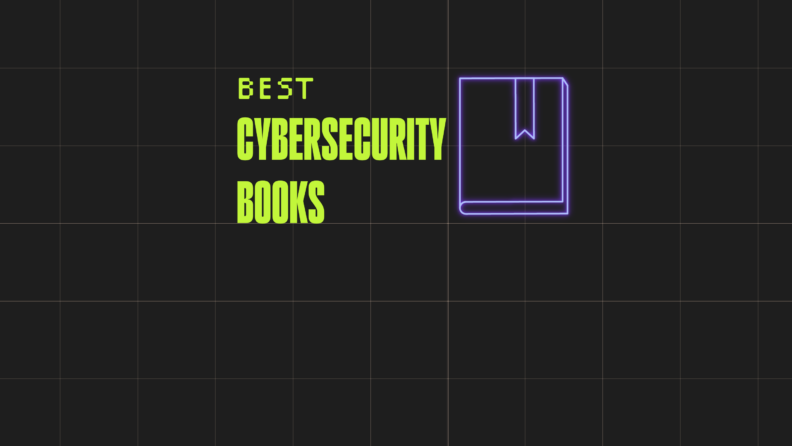Cybersecurity is a complex and evolving space that demands both respect and understanding. The threats lurking online can feel overwhelming. But fear not, intrepid web warriors! My curated selection of cybersecurity books will equip you with the knowledge to protect your organization and thrive in a vulnerable digital world.
Whether you're a seasoned professional or a curious newcomer, the books I've selected offer insights, practical strategies, and strategic guidance that will empower you to outsmart cybercriminals and safeguard your digital world.
15 Best Cybersecurity Books
Check out these resources to bolster your defenses against cyber threats.
- The Art of Invisibility by Kevin Mitnick
- Ghost in the Wires by Kevin Mitnick
- Hacking: The Art of Exploitation by Jon Erickson
- Social Engineering: The Science of Human Hacking by Kevin Mitnick
- The Web Application Hacker's Handbook by Dafydd Stuttard and Marcus Pinto
- Black Hat Python by Justin Seitz and Tim Arnold
- Metasploit: The Penetration Tester's Guide by David Kennedy, Jim O'Gorman, Devon Kearns, and Mati Aharoni
- The Cuckoo's Egg by Clifford Stoll and Will Damron
- Network Security Essentials by William Stallings
- Cryptography and Network Security by William Stallings
- Applied Cryptography by Bruce Schneier
- Future Crimes by Marc Goodman
- Countdown to Zero Day by Kim Zetter
- Permanent Record by Edward Snowden
- Defensive Security Handbook by Lee Brotherston and Amanda Berlin
Overviews of the 15 Best Cybersecurity Books
1. The Art of Invisibility by Kevin Mitnick
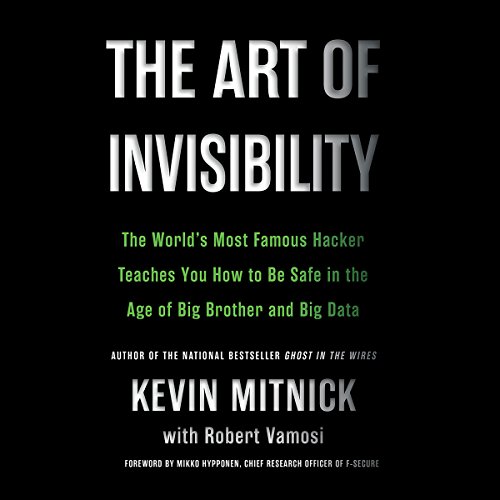
Summary:
Get into the nitty gritty of online privacy and security with Kevin Mitnick, the world's most renowned hacker.
What You'll Learn:
Advanced online privacy techniques, tools cybercriminals use, and strategies to safeguard your big data.
Why You Should Read It:
Mitnick combines firsthand experiences with technical insights, providing a unique perspective – an "insider's look" – on digital security.
Quote From The Book:
"People are often their own worst enemy online; the human factor is the most significant vulnerability."
About The Author:
Kevin Mitnick is a globally recognized cybersecurity consultant, speaker, and author. Connect with him on LinkedIn, follow his updates on X, or explore more about him on his personal website.
2. Ghost in the Wires by Kevin Mitnick
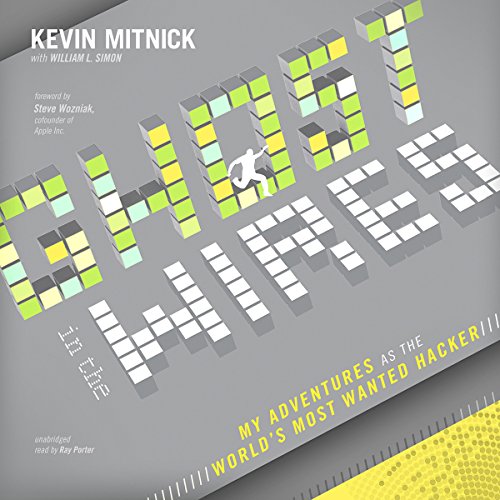
Summary:
"Ghost in the Wires" is a gripping memoir of Mitnick’s transformation from an FBI's Most Wanted hacker to a top cybersecurity expert.
What You'll Learn:
The minds behind high-profile cyberattacks, phishing data breaches, Mitnick's evasion strategies, and the intricacies of digital cat-and-mouse chases.
Why You Should Read It:
This memoir entertains and educates readers about the thin line between hacking for curiosity and cybercrime.
Quote From The Book:
"In the world of black-hat hacking, there's an endless number of ways to infiltrate an objective."
About The Author:
Kevin Mitnick, once on the FBI's Most Wanted, now stands as a beacon in the cybersecurity world. Get to know him on LinkedIn, catch his insights on X, or learn more at his personal website.
3. Hacking: The Art of Exploitation by Jon Erickson

Summary:
Erickson's magnum opus demystifies hacking by taking readers on an in-depth journey into the art and science behind it.
What You'll Learn:
Programming nuances, exploit development, and a deep dive into the hacker's toolkit.
Why You Should Read It:
This book is a foundational text for anyone aiming to understand hacking from the ground up.
Quote From The Book:
"To truly understand how something works, you need to take it apart and put it back together."
About The Author:
Jon Erickson is a pioneer in the world of cybersecurity, with an emphasis on creative problem-solving.
4. Social Engineering: The Science of Human Hacking by Christopher Hadnagy
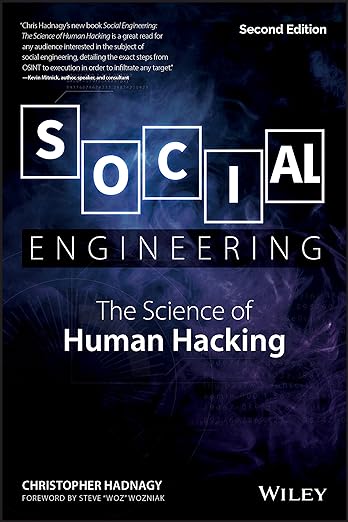
Summary:
Christopher Hadnagy discusses social engineering and explores the tactics used to manipulate and induce individuals to divulge confidential information.
What You'll Learn:
Methods and psychology behind effective social engineering, the role of persuasion in hacking techniques, and strategies to defend against manipulation and cyberwar.
Why You Should Read It:
Hadnagy's insights allow readers to peer into the minds of social engineers – what better resource to guard against human-centric threats?
Quote From The Book:
"Manipulation is moving someone for personal gain. Influence is moving someone for mutual gain."
About The Author:
Christopher Hadnagy is a recognized expert in social engineering and has dedicated his career to understanding the art of manipulation. Engage with him on LinkedIn, follow his insights on X, or learn more on the book’s website.
5. The Web Application Hacker's Handbook by Dafydd Stuttard and Marcus Pinto
Summary:
Stuttard and Pinto present a comprehensive guide to uncovering the vulnerabilities in web applications, emphasizing hands-on techniques and real-world scenarios.
What You'll Learn:
Identifying and exploiting security flaws in web apps, methods for web-based penetration testing, and ways to ensure robust web application security (whether you're a beginner or not).
Why You Should Read It:
The book is a go-to for cybersecurity professionals who need to understand and mitigate the most critical web security challenges of today.
Quote From The Book:
"Understanding your enemy is the key to defeating them."
About The Authors:
Dafydd Stuttard and Marcus Pinto are renowned figures in web security with decades of combined experience. Connect with Dafydd on LinkedIn and X.
6. Black Hat Python by Justin Seitz and Tim Arnold
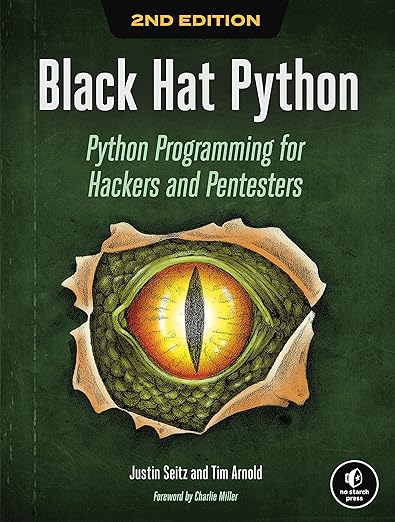
Summary:
Seitz and Arnold guide readers through the world of black-hat Python programming, offering a deep dive into the creation of stealthy trojans, extended networking, and malicious payloads.
What You'll Learn:
Advanced Python scripting for cybersecurity, creating network sniffers, and crafting undetectable malware.
Why You Should Read It:
Perfect for those aiming to harness Python for ethical hacker techniques or seeking a deeper understanding of potential cyber threats.
Quote From The Book:
"With Python, the art of the possible is only limited by your imagination."
About The Authors:
Justin Seitz and Tim Arnold are celebrated for their expertise in cyber forensics and ethical hacking.
7. Metasploit: The Penetration Tester's Guide by David Kennedy, Jim O'Gorman, Devon Kearns, and Mati Aharoni
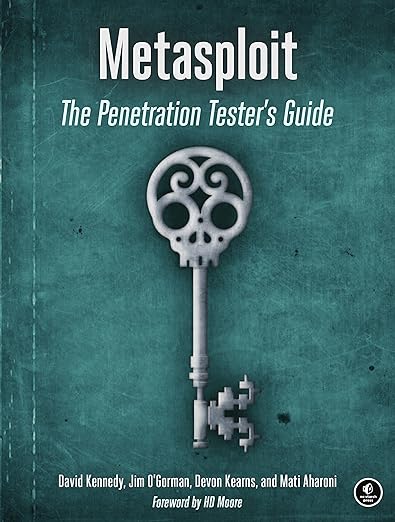
Summary:
This is a deep dive into Metasploit, one of the most versatile and powerful penetration testing platforms. The authors showcase the tool’s capabilities, providing fantastic insights for budding and experienced pen testers.
What You'll Learn:
The intricacies of the Metasploit framework, exploiting target systems, and techniques for post-exploitation, ensuring maximum impact.
Why You Should Read It:
With hands-on examples and personalized insights, this book is all you need to master the art of penetration testing using Metasploit.
Quote From The Book:
"In the realm of penetration testing, knowledge is power, and Metasploit is your arsenal."
About The Authors:
David Kennedy, Jim O'Gorman, Devon Kearns, and Mati Aharoni are prominent figures in the world of cybersecurity.
8. The Cuckoo's Egg by Clifford Stoll and Will Damron

Summary:
A riveting tale of intrigue and digital espionage, "The Cuckoo's Egg" chronicles Stoll's relentless pursuit of a hacker breaking into U.S. computer systems.
What You'll Learn:
The captivating story of real-life cyber espionage, the origins of cyber tracking, and the depth of commitment needed to unearth a digital intruder.
Why You Should Read It:
A blend of detective thriller and tech deep-dive, this book provides a unique perspective on early cybersecurity efforts in a gripping narrative form.
Quote From The Book:
"Sometimes the littlest of things reveal the grandest of schemes."
About The Authors:
Clifford Stoll, an astronomer turned cybersecurity pioneer, is recognized for his early efforts in tracking digital espionage. A co-author, Will Damron, brings narrative depth to the tale.
9. Network Security Essentials by William Stallings
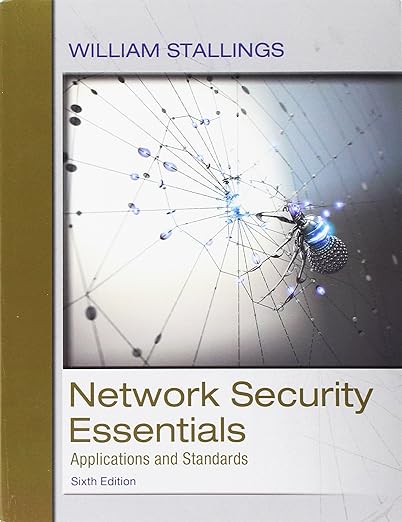
Summary:
Stallings crafts an essential guide to network security, touching on the foundational principles and modern practices that ensure digital information security.
What You'll Learn:
Key concepts of digital security, cryptographic tools, and the countermeasures, strategies, and technologies vital for safeguarding network infrastructures.
Why You Should Read It:
Whether a student, a professional, or someone keen to understand network security, Stallings' systematic approach provides clarity in an often complex domain.
Quote From The Book:
"In a networked world, trust is the cornerstone of security."
About The Author:
William Stallings is an authority on computer networking and cybersecurity. Connect with him on LinkedIn, follow his insights on X, or explore his work from his website.
10. Cryptography and Network Security by William Stallings
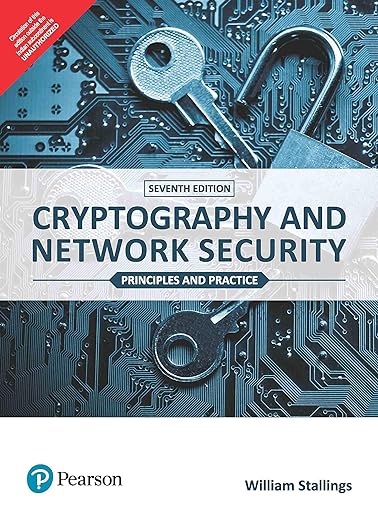
Summary:
A comprehensive examination of the modern cryptography landscape and its essential role in network security. Through detailed explanations and practical examples, it elucidates the principles and practices of this complex domain.
What You'll Learn:
The foundations of cryptography, modern encryption methods, secure communications protocols, and the role of cryptography in ensuring network security.
Why You Should Read It:
To grasp the nuances of cryptographic techniques and their implementation in safeguarding networks.
Quote From The Book:
"Cryptography is the singular thread weaving the fabric of network security."
About The Author:
William Stallings, a renowned figure in computer science, has made significant contributions in networking, operating systems, and, notably, cryptography. Engage with him on LinkedIn, explore his insights on X, or learn more on his website.
11. Applied Cryptography by Bruce Schneier
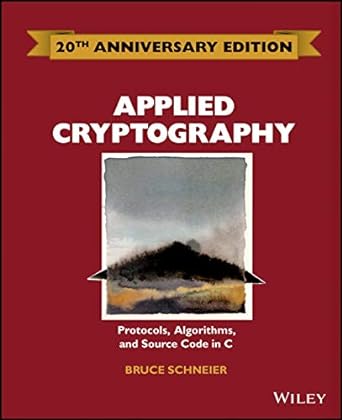
Summary:
In "Applied Cryptography," Schneier examines cryptographic protocols, ciphers, and message integrity techniques. This masterful guide balances theoretical principles with their real-world applications.
What You'll Learn:
Cryptographic algorithms, their practical application, and the broader role of cryptography in ensuring data security and integrity.
Why You Should Read It:
Schneier’s combination of in-depth understanding and practical advice makes this a must-read for anyone serious about cryptography in real-world scenarios.
Quote From The Book:
"The more one understands about an attack, the better one can defend against it."
About The Author:
Bruce Schneier is a globally recognized expert on cryptography and an influential voice on security policies. Follow his insights on X or consider his perspectives at his website.
12. Future Crimes by Marc Goodman
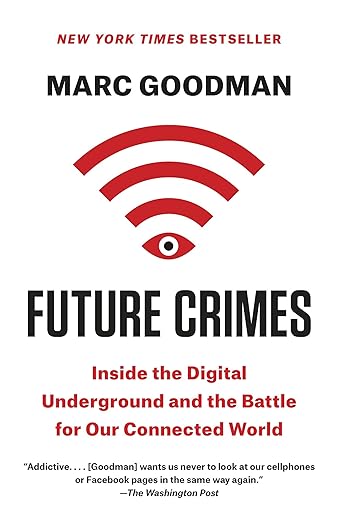
Summary:
Goodman offers a provocative glimpse into the dark underbelly of the digital future, examining the potential pitfalls and threats in the cyber landscape.
What You'll Learn:
The looming challenges in cybersecurity, the unforeseen cybersecurity risks of emerging technologies, and a forward-thinking approach to navigating the future digital landscape.
Why You Should Read It:
Goodman's work is a wake-up call for anyone involved in technology, offering a comprehensive view of the potential challenges ahead and how to address them.
Quote From The Book:
"Innovation without consideration will be our downfall."
About The Author:
Marc Goodman, a global strategist, author, and consultant, specializes in the disruptive impact of advancing technologies on security, business, and international affairs. Engage with him on LinkedIn or get updated via X.
13. Countdown to Zero Day by Kim Zetter
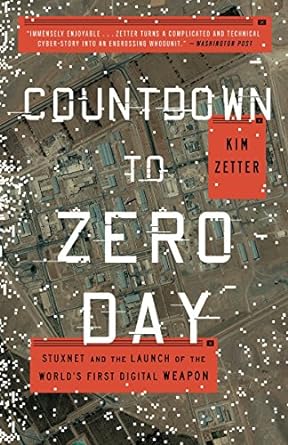
Summary:
Zetter captivatingly unfolds the story of Stuxnet, a sophisticated piece of malware that wreaked havoc on Iran's nuclear program. The book covers cyber warfare, detailing the covert operation that led to the deployment of the world's first digital weapon.
What You'll Learn:
The intricate details of the Stuxnet attack, the rise of state-sponsored cyber warfare, and the implications of deploying digital weapons in geopolitical conflicts.
Why You Should Read It:
For a riveting account of the cyber frontier's shifting landscape and an understanding of the imminent threats in the evolving realm of digital warfare.
Quote From The Book:
"In the age of digital warfare, code is the weapon, and the battlefield is everywhere."
About The Author:
Kim Zetter is an award-winning journalist and author who specializes in cybersecurity and national security issues. Connect with her on LinkedIn, stay updated through X, or explore more on her website.
14. Permanent Record by Edward Snowden
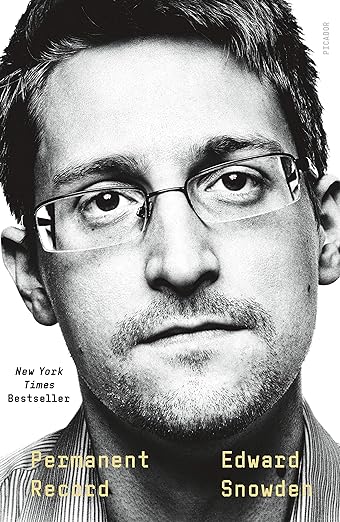
Summary:
In this memoir, Edward Snowden recounts his journey from a fervent patriot to a whistleblower who exposed the massive surveillance apparatus of the U.S. government. It's a thought-provoking narrative about privacy, power, and digital surveillance.
What You'll Learn:
Snowden's motivations, the intricate web of government surveillance, and the pressing need for privacy reforms in the digital age.
Why You Should Read It:
A firsthand account of one of the most significant events in the history of intelligence and a call to action to protect individual freedoms in an increasingly connected world.
Quote From The Book:
"Defending our rights in a digital age demands knowledge, courage, and the understanding that privacy is a fundamental human right."
About The Author:
Edward Snowden, formerly a CIA employee and NSA contractor, became globally recognized for his role in revealing classified NSA information.
15. Defensive Security Handbook by Lee Brotherston and Amanda Berlin
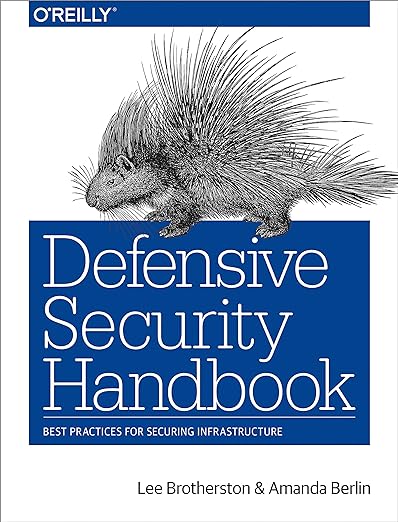
Summary:
Brotherston and Berlin offer a comprehensive guide to building robust and resilient defenses in the digital space. They provide actionable strategies for protecting assets, detecting intrusions, and mitigating potential threats.
What You'll Learn:
Best practices in defensive security, building layered defenses, incident response strategies, and nurturing a proactive security culture.
Why You Should Read It:
For IT professionals and cybersecurity enthusiasts seeking to build or enhance a robust security posture against evolving threats.
Quote From The Book:
"Security isn't a destination; it's a journey of adapting and evolving defenses."
About The Authors:
Lee Brotherston and Amanda Berlin are seasoned experts in cybersecurity, each with unique insights and experiences. Connect with Lee on LinkedIn, and follow Amanda's insights on LinkedIn.
Want More?
These titles offer a mix of technical depth, historical context, and current insights. There are many noteworthy cybersecurity resources available for you to learn more.
Please subscribe to our newsletter for updates on the latest news in cybersecurity and beyond.

